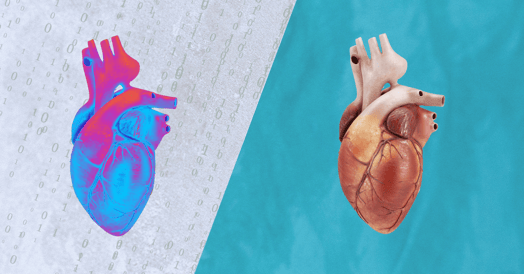You’ve likely already heard the term “digital twin.”

Whether it’s an avatar in a Zoom meeting, a postmortem persona, or a pair of sneakers, a digital twin is a virtual replica of a physical entity.
But there’s an application for digital twins that’s somehow even more exciting than texting with the dead: They could one day save your life.
The global digital twins health care market is projected to reach $21.1B by 2028, up from $1.6B in 2023. And startups, government agencies, and academic institutions alike are pouring funding into developing it, per The Wall Street Journal.
Have heart
At Johns Hopkins University, researchers are creating digital twins of real patients’ hearts with potentially fatal arrhythmias.
- First, patients complete a cardiac MRI. Then, researchers use AI to turn the scan images into a 3D reconstruction of the patient’s heart, complete with scarring and damaged cells.
- The on-screen heart is then filled with virtual cells, which can generate electrical signals, and a heartbeat.
The digital twin can then be used to predict the location of irregular rhythms and plan out future procedures to fix them.
Virtual head to toe
Digital twins aren’t just for our hearts — experiments are underway to use them for all sorts of medical processes.
- Researchers at Columbia University are making digital twins for uteruses and cervixes to predict the course of pregnancies and, hopefully, someday prevent preterm births.
- The National Cancer Institute is creating digital twins of oncology patients to predict how cancer might respond to different treatments.
- Cleveland Clinic is using digital twins to better understand population health and tackle location-based health disparities.
If, one day, we all had a digital twin, it could solve some of health care’s biggest issues, like conducting drug trials without harming patients or spotting potential issues before beginning surgery.
But if our digital twins could get shots instead of us, we’d really be excited.
.jpg?width=48&height=48&name=IMG_2563%20(1).jpg)